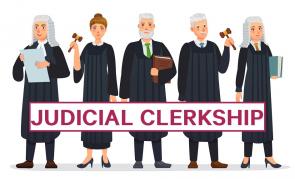
What is the Role of an Electric Power Attorney?
- Electric Power Attorney provides assistance to the electric power company, a consumer, a municipality, or a non-government entity.
- Typical areas of practice for an electric power lawyer include regulatory analysis, advocacy, and interpretation in connection with proceedings before any regulatory agency.
- In a litigation context, attorneys assist in representing a client before a regulatory agency in seeking a license, permit, or approval issued by an agency. Legal representation is also often sought by parties during appeals of regulatory decisions or orders to the appropriate appellate court.
- An electric attorney assists in responding to regulatory enforcement actions, participating in the formal rulemaking process, providing legal advice on compliance with laws and regulations, or representing a client in the purchase and sale, or financing of electric services.
- By participating in regulatory proceedings, drafting landmark deregulation legislation, and handling related appellate litigation, they contribute to the deregulation and restructuring of the nation's electric industries.
Legal and Regulatory Framework Governing Electric Power
The Federal Power Act of 1920, since amended many times, created the Federal Energy Regulatory Commission (FERC or Commission). This agency regulates the interstate transmission of electricity. The Commission:
- Reviews mergers and acquisitions and other corporate transactions by electricity companies;
- Evaluates submitted siting applications for electric transmission projects;
- Licenses and periodically reviews private, municipal, and hydroelectric projects;
- Ensures the dependability of the high voltage interstate transmission systems through reliability standards; and
- Oversees environmental issues associated with hydroelectricity matters.
Commission Enforcement
FERC takes its mission seriously and has an aggressive enforcement program that focuses on:
- Market manipulation
- Fraud
- Anticompetitive conduct
- Violations of electric reliability standards
- Other threats to the transparency of the regulated market.
The Commission has broad powers to investigate and possesses the necessary tools to do so. Here is an overview of its investigative process.
Audits
FERC's Division of Audit and Accounting (DAA) has the legal authority to perform public electric utility audits. A company subject to an audit receives a commencement letter. This letter "describes the purposes and scope of the audit." It requires the audited company to provide DAA's audit team free access to its property, accounts, records, and other documentation.
Based on the information obtained through its audit, DAA issues a draft audit report to the company. It includes DAA's findings and recommendations for corrective action. Typically, the audited business has 15 days to respond informally. This response may contain the company's alternative recommendations and corrective actions to address the audit staff's concerns.
After considering the company's informal response, DAA issues its conclusions, to which the audited business provides a formal response. This will state:
- Whether the company agrees with the audit findings;
- The status of any corrective actions being undertaken; and
- Alternative resolutions to any of DAA's recommended corrective actions.
Once the targeted company's responses are received, Commission staff will review them. If they determine the response is insufficient, they likely will recommend further action to the Director of the Office of Enforcement. If the Director agrees, FERC will issue a Preliminary Notice of Violation. Commission staff and the company will then re-engage in settlement discussions.
If a settlement is reached, the parties will enter into a Stipulation and Consent Agreement. If the parties are unable to settle, then FERC will issue an Order to Show Cause. Suppose settlement still is not possible after issuance. In that case, the Commission likely will take administrative action against the company, which has the right to appeal such action in federal court.
Most targeted companies make substantial efforts to avoid administrative actions because the resulting fines can be severe. For example, FERC fined Barclays $70 million and ordered it to disgorge $35 million in profits after the Commission accused the company of manipulating energy markets in the Western United States.
State Regulations
While FERC has extensive powers, our federal system of government means that much electric power oversight remains with state Public Utility Commissions. These state agencies regulate the retail electricity sales to consumers (including rates) and the construction of electric generation facilities. They have their own enforcement divisions.
Careers for Electric Power Attorneys
There are two broad career options for electric power lawyers – public service and the private sector.
Public Career Opportunities
Electric power attorneys have many prospects in the public arena.
FERC Staff Attorneys
These electric power lawyers litigate cases in FERC's administrative proceedings and draft associated motions and briefs.
They also research and prepare documents like Preliminary Notices of Violation, Stipulation and Consent Agreements, and Orders to Show Cause. Finally, the draft proposed rules for the Commission and provided it other legal support.
FERC Administrative Law Judge
Administrative Law Judges (ALJs) adjudicate FERC's administrative actions. They conduct hearings, render decisions, and facilitate settlement hearings.
State Opportunities
Like the federal government, the states have enforcement agencies similar to FERC to enforce actions related to their role in electricity. For example, there is the California Public Utilities Commission and the New York State Public Service Commission. These state agencies hire electric power attorneys as well.Private Career Opportunities
Electric power attorneys also have options in the private sector.
Defense Attorney – FERC and State Agencies
Massive electric power companies like Pacific Gas & Electric and Florida Power & Light are billion-dollar industries. For example, in 2019, Pacific Gas & Electric reported more than $17 billion in revenue.
Occasionally, businesses like these become the target of federal or state investigations or enforcement actions. They hire electric power lawyers to negotiate with or litigate against FERC and state equivalents alternatively.
The electric power lawyer employed by these companies have several roles:
- Replying to FERC's commencement letters and associated audits. The lawyer is present while FERC performs its audit and accesses its property, accounts, records, and other documentation.
- Answering FERC's draft audit reports. The attorney responds to the Commission's concerns and proposes possible corrective actions to prevent FERC's further administrative actions.
- Responding to the Commission's Notices of Violations and Orders to Show Cause.
This involves reviewing the notice and entering into negotiations with FERC to see if a settlement is possible. If so, the attorney will work with FERC on the Stipulation and Consent Agreement. If a settlement is not possible, the attorney will have to review FERC's Order to Show Cause.
- Administrative Proceedings. The targeted company's electric power lawyer represents the company in FERC's hearings and adjudications before the Commission's administrative law judge.
- Federal Court. Represents the business to defend it against FERC's allegations in federal district court. Suppose the company disagrees with the district court's decision. In that case, the electric power attorney will likely retain outside counsel specializing in appellate practice to representing the company in the U.S.Court of Appeals and even the Supreme Court.
While this is the federal process, the electric power attorney would follow similar procedures when dealing with state public utility commissions' investigations and enforcement actions.
Defense Attorney – Civil Lawsuits
On November 18, 2018, the most deadly and destructive wildfire in the history of California occurred. Allegedly started by a faulty electric transmission line owned by Pacific Gas & Electric, the fire rapidly expanded to an area of 240 square miles and destroyed the town of Paradise, California. At least 85 civilians died, and five firefighters were injured. The fire destroyed more than 18,000 structures and caused over $16 billion in damages.
It did not take long for the lawsuits to be filed against Pacific Gas & Electric. Armies of electric power defense attorneys are involved in the utility's defense in court.
Due to the age of the nation's electric transmission infrastructure, more wildfires and similar events will occur, leading to a steady demand for electric power lawyers in civil defense.
Defense Attorney – Criminal
Public utilities, in addition to being sued for civil issues, can be criminally charged. For example, Pacific Gas & Electric ultimately pled guilty to 84 counts of involuntary manslaughter in the fire described above. Electric power attorneys specializing in criminal defense are needed for these types of criminal prosecutions.
Transactions, Mergers, and Acquisitions
Electric power companies and private firms are continually entering into transactions, mergers, and acquisitions. They often hire outside counsel for assistance. The electric power attorneys that work for these retained law firms:
- Negotiate and seek approval of wholesale power and transmission venture contracts by appropriate regulatory bodies;
- Prepare documentation for developing financial joint generation and transmission ventures;
- Draft and negotiate power purchase agreements and other contracts necessary to implement related projects; and
- Represent electric power companies in the appellate process at federal and state levels.
Law School Professor
Some law schools have institutes or degree specializations geared toward the electric power field. This is an excellent opportunity for experienced regulatory or civil defense electric power attorneys to change careers later in life and be law school professors.
How do I Become an Electric Power Lawyer?
There are a couple of things interested individuals can do. First, consider a major in electrical engineering or business before law school. When looking at law schools, consider attending one that has a specialized program in energy policy. Both will serve you well and help you on the way to being a successful electric power attorney.
See also:
- Energy Public Utility Attorney Jobs in San Francisco.
- Your Job Search and Future Prospects Will Be Determined by the Company You Keep.
- Fight for the Right to Work.
- The Life And Career Of Marcia Clark, Criminal Defense Attorney.
- The Most Valuable Work Is Work That Repeats Itself.
- Froth, Downward Wages, and the Importance of Repeat Busines
About Harrison Barnes
No legal recruiter in the United States has placed more attorneys at top law firms across every practice area than Harrison Barnes. His unmatched expertise, industry connections, and proven placement strategies have made him the most influential legal career advisor for attorneys seeking success in Big Law, elite boutiques, mid-sized firms, small firms, firms in the largest and smallest markets, and in over 350 separate practice areas.
A Reach Unlike Any Other Legal Recruiter
Most legal recruiters focus only on placing attorneys in large markets or specific practice areas, but Harrison places attorneys at all levels, in all practice areas, and in all locations-from the most prestigious firms in New York, Los Angeles, and Washington, D.C., to small and mid-sized firms in rural markets. Every week, he successfully places attorneys not only in high-demand practice areas like corporate and litigation but also in niche and less commonly recruited areas such as:
- Immigration Law
- Workers Compensation
- Insurance
- Family Law
- Trust and Estate
- Municipal law
- And many more...
This breadth of placements is unheard of in the legal recruiting industry and is a testament to his extraordinary ability to connect attorneys with the right firms, regardless of market size or practice area.
Proven Success at All Levels
With over 25 years of experience, Harrison has successfully placed attorneys at over 1,000 law firms, including:
- Top Am Law 100 firms such including Sullivan and Cromwell, and almost every AmLaw 100 and AmLaw 200 law firm.
- Elite boutique firms with specialized practices
- Mid-sized firms looking to expand their practice areas
- Growing firms in small and rural markets
He has also placed hundreds of law firm partners and has worked on firm and practice area mergers, helping law firms strategically grow their teams.
Unmatched Commitment to Attorney Success - The Story of BCG Attorney Search
Harrison Barnes is not just the most effective legal recruiter in the country, he is also the founder of BCG Attorney Search, a recruiting powerhouse that has helped thousands of attorneys transform their careers. His vision for BCG goes beyond just job placement; it is built on a mission to provide attorneys with opportunities they would never have access to otherwise. Unlike traditional recruiting firms, BCG Attorney Search operates as a career partner, not just a placement service. The firm's unparalleled resources, including a team of over 150 employees, enable it to offer customized job searches, direct outreach to firms, and market intelligence that no other legal recruiting service provides. Attorneys working with Harrison and BCG gain access to hidden opportunities, real-time insights on firm hiring trends, and guidance from a team that truly understands the legal market. You can read more about how BCG Attorney Search revolutionizes legal recruiting here: The Story of BCG Attorney Search and What We Do for You.
The Most Trusted Career Advisor for Attorneys
Harrison's legal career insights are the most widely followed in the profession.
- His articles on BCG Search alone are read by over 150,000 attorneys per month, making his guidance the most sought-after in the legal field. Read his latest insights here.
- He has conducted hundreds of hours of career development webinars, available here: Harrison Barnes Webinar Replays.
- His placement success is unmatched-see examples here: Harrison Barnes' Attorney Placements.
- He has created numerous comprehensive career development courses, including BigLaw Breakthrough, designed to help attorneys land positions at elite law firms.
Submit Your Resume to Work with Harrison Barnes
If you are serious about advancing your legal career and want access to the most sought-after law firm opportunities, Harrison Barnes is the most powerful recruiter to have on your side.
Submit your resume today to start working with him: Submit Resume Here
With an unmatched track record of success, a vast team of over 150 dedicated employees, and a reach into every market and practice area, Harrison Barnes is the recruiter who makes career transformations happen and has the talent and resources behind him to make this happen.
A Relentless Commitment to Attorney Success
Unlike most recruiters who work with only a narrow subset of attorneys, Harrison Barnes works with lawyers at all stages of their careers, from junior associates to senior partners, in every practice area imaginable. His placements are not limited to only those with "elite" credentials-he has helped thousands of attorneys, including those who thought it was impossible to move firms, find their next great opportunity.
Harrison's work is backed by a team of over 150 professionals who work around the clock to uncover hidden job opportunities at law firms across the country. His team:
- Finds and creates job openings that aren't publicly listed, giving attorneys access to exclusive opportunities.
- Works closely with candidates to ensure their resumes and applications stand out.
- Provides ongoing guidance and career coaching to help attorneys navigate interviews, negotiations, and transitions successfully.
This level of dedicated support is unmatched in the legal recruiting industry.
A Legal Recruiter Who Changes Lives
Harrison believes that every attorney-no matter their background, law school, or previous experience-has the potential to find success in the right law firm environment. Many attorneys come to him feeling stuck in their careers, underpaid, or unsure of their next steps. Through his unique ability to identify the right opportunities, he helps attorneys transform their careers in ways they never thought possible.
He has worked with:
- Attorneys making below-market salaries who went on to double or triple their earnings at new firms.
- Senior attorneys who believed they were "too experienced" to make a move and found better roles with firms eager for their expertise.
- Attorneys in small or remote markets who assumed they had no options-only to be placed at strong firms they never knew existed.
- Partners looking for a better platform or more autonomy who successfully transitioned to firms where they could grow their practice.
For attorneys who think their options are limited, Harrison Barnes has proven time and time again that opportunities exist-often in places they never expected.
Submit Your Resume Today - Start Your Career Transformation
If you want to explore new career opportunities, Harrison Barnes and BCG Attorney Search are your best resources. Whether you are looking for a BigLaw position, a boutique firm, or a move to a better work environment, Harrison's expertise will help you take control of your future.
Submit Your Resume Here to get started with Harrison Barnes today.
Harrison's reach, experience, and proven results make him the best legal recruiter in the industry. Don't settle for an average recruiter-work with the one who has changed the careers of thousands of attorneys and can do the same for you.
About BCG Attorney Search
BCG Attorney Search matches attorneys and law firms with unparalleled expertise and drive, while achieving results. Known globally for its success in locating and placing attorneys in law firms of all sizes, BCG Attorney Search has placed thousands of attorneys in law firms in thousands of different law firms around the country. Unlike other legal placement firms, BCG Attorney Search brings massive resources of over 150 employees to its placement efforts locating positions and opportunities its competitors simply cannot. Every legal recruiter at BCG Attorney Search is a former successful attorney who attended a top law school, worked in top law firms and brought massive drive and commitment to their work. BCG Attorney Search legal recruiters take your legal career seriously and understand attorneys. For more information, please visit www.BCGSearch.com.
Harrison Barnes does a weekly free webinar with live Q&A for attorneys and law students each Wednesday at 10:00 am PST. You can attend anonymously and ask questions about your career, this article, or any other legal career-related topics. You can sign up for the weekly webinar here: Register on Zoom
Harrison also does a weekly free webinar with live Q&A for law firms, companies, and others who hire attorneys each Wednesday at 10:00 am PST. You can sign up for the weekly webinar here: Register on Zoom
You can browse a list of past webinars here: Webinar Replays
You can also listen to Harrison Barnes Podcasts here: Attorney Career Advice Podcasts
You can also read Harrison Barnes' articles and books here: Harrison's Perspectives
Harrison Barnes is the legal profession's mentor and may be the only person in your legal career who will tell you why you are not reaching your full potential and what you really need to do to grow as an attorney--regardless of how much it hurts. If you prefer truth to stagnation, growth to comfort, and actionable ideas instead of fluffy concepts, you and Harrison will get along just fine. If, however, you want to stay where you are, talk about your past successes, and feel comfortable, Harrison is not for you.
Truly great mentors are like parents, doctors, therapists, spiritual figures, and others because in order to help you they need to expose you to pain and expose your weaknesses. But suppose you act on the advice and pain created by a mentor. In that case, you will become better: a better attorney, better employees, a better boss, know where you are going, and appreciate where you have been--you will hopefully also become a happier and better person. As you learn from Harrison, he hopes he will become your mentor.
To read more career and life advice articles visit Harrison's personal blog.





